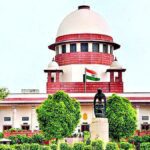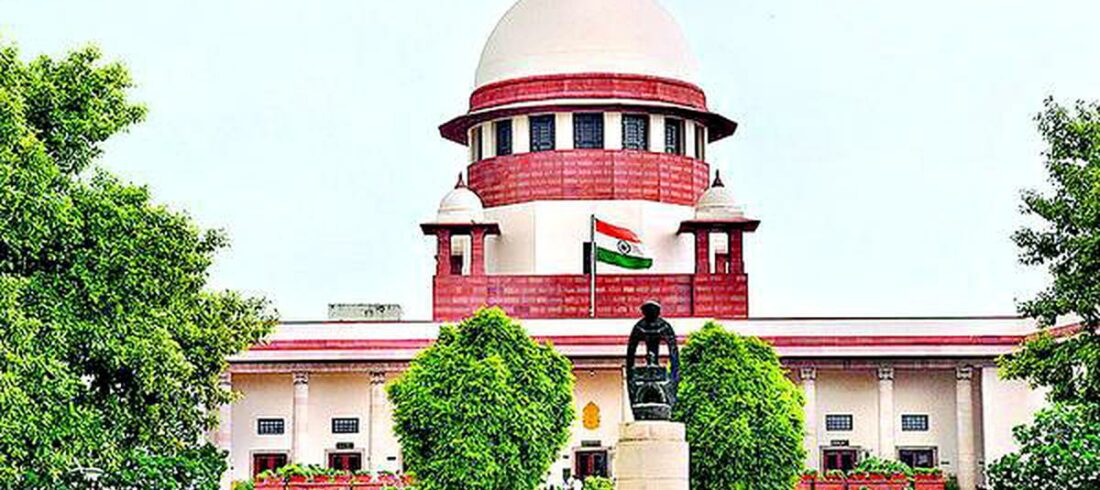The Supreme Court recently ruled that in order for a later order, provision, or amendment to be regarded as clarifying an earlier provision, it must not broaden or change the original provision’s application, and the earlier provision must be sufficiently ambiguous or vague to call for such clarification.
Facts
The Kerala High Court’s division bench ordered the Sree Shankaracharya University of Sanskrit to give the first respondent, a university lecturer of Hindi, two advance increments upon his appointment as a Selection Grade Lecturer. The university appealed the decision. In accordance with Clause 6.18 of the 1998 University Grants Commission Scheme Revision and a 1999 Government Order, this directive was granted.
According to Clause 6.16 of the 1999 UGC Scheme, which provides that a candidate holding a Ph.D. degree at the time of employment as a lecturer is eligible for four advance increments, the first respondent was hired by the university in 1999 and was given four advance increments.
He was hired in 2001 as a Selection Grade Lecturer, however he was not given the two advance increments that are due to a Lecturer with a Ph.D. upon hiring under Clause 6.18 of the 1999 UGC Scheme. The first respondent complained to the Kerala High Court over the non-payment of the increases, and the court decided in his favour. Later, a High Court division court upheld the single bench’s judgement.
Because of a 2001 Government Order that made it clear that lecturers who had received advance increments for having a Ph.D. degree would not be eligible for further increments on being placed as Selection Grade Lecturer, the University claimed that Respondent No. 1 was not eligible for any further increments based on his Ph.D. degree, on being placed in the selection grade. The University believed that the first respondent would not be entitled for two further advance increments for holding a Ph.D. degree at the time he was put in the selection grade since he had already obtained four advance increments for doing so.
Arguments
According to Clauses 6.16 to 6.19 of the 1999 Government Order, a professor with a Ph.D. is only eligible for a maximum of four advance increments in all cases, according to the advocate of the University. The Attorney further argued that the 2001 order, which the Government issued as part of the 1999 Order, was just clarifying in nature and would apply retroactively.
For the first respondent, attorney Raghenth Basant claimed that the 2001 Government Order could not be considered a clarification and could not be made retroactively relevant. In his view, Clauses 6.16, 6.18, and 6.19 of the 1999 Government Order could not be read to mean that a Lecturer who had already benefited from four advance increments during recruitment would not be eligible for two more advance increments upon being placed in the selection grade.
Observations and Analysis
The Court deliberated whether the 2001 Government Order modified the 1999 Government Order or just clarified it. If it is in the nature of a clarification, it may have a retroactive impact, but if it is, in fact, an amendment, it would not apply going forward since it would result in the loss of vested rights, the Apex Court said.
The 2001 Government Order, according to the Court, “substantially modified” the 1999 Government Order since it limited lecturers’ eligibility for advance increments. The Court ruled that the 1999 plan did not anticipate the removal of the advantage of two advance increments from a group of lecturers and that it cannot have a retroactive impact.
The bench therefore noted that the circumstances under which an amendment or modification was introduced and the consequences thereof would have to be taken into consideration while deciding whether the amendment was of a clarifying or substantive nature and whether it would have retrospective effect or not. The bench cited the case of Commissioner of Income Tax, Bombay vs. Podar Cement Pvt. Ltd., (1997).
This Court determined that a measure passed by the Parliament had certain unforeseen implications in Allied Motors Pvt. Ltd. vs. Commissioner of Income Tax, Delhi (1997). Undoubtedly, something was missing. A proviso was requested to be included through an amendment in order to correct the flaw. The Court decided that literal interpretation might be avoided if it would contradict the Act’s obvious goal and purpose. This Court determined that it would be difficult to rationally construe the relevant clause if the change was not incorporated into it retroactively.
The court determined that even if the legislation does contain a declaration to the effect that the alteration is declaratory or clarificatory, it is not the end of the issue in the case of Virtual Soft Systems Ltd. vs. Commissioner of Income Tax, Delhi. The Court will not view the aforementioned statement as binding upon it; instead, it will examine the nature of the amendment to determine whether it is, in fact, a clarifying or a declaratory provision, or whether it is an amendment that is intended to change the law and is applicable to future periods.
According to the aforementioned case laws, the following guidelines might be drawn:
- Retrospective application of a legislation may be allowed if it corrects an error in the prior law or is just clarifying it.
- The prior legislation must have been confusing or imprecise in order for a later order, provision, or change to be regarded as clarifying it. The amendment is only deemed to be a clarification or statement of the prior law and is thus applied retroactively when it would be unreasonable to legitimately understand a provision without one being read into it.
- The scope of the original provision cannot be expanded upon or changed by an explanation or clarification.
- The Court is not bound by a provision’s description as a clarification or explanation simply because it appears in the statute; instead, it must examine the nature of the amendment to determine whether it is truly a clarificatory or declaratory provision or whether it is a substantive amendment that changes the law and takes effect immediately.
Judgment
The court held that the following Government Order of 29th March, 2001 cannot be deemed as a clarification and, as a result, be made applicable retroactively after applying the legislation as explained above to the circumstances of the case. Therefore, the appeal was dismissed.








